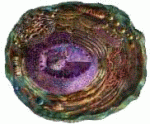Cell Biology
|
16 july 2014 05:36:29 |
| Identifying USPs regulating immune signals in (Cell Communication and Signaling) |
|
Tweet Background:
Rapid activation of innate immune defences upon microbial infection depends on the evolutionary conserved NF-?B dependent signals which deregulation is frequently associated with chronic inflammation and oncogenesis. These signals are tightly regulated by the linkage of different kinds of ubiquitin moieties on proteins that modify either their activity or their stability. To investigate how ubiquitin specific proteases (USPs) orchestrate immune signal regulation, we created and screened a focused RNA interference library on Drosophila NF-?B-like pathways Toll and Imd in cultured S2 cells, and further analysed the function of selected genes in vivo.
Results:
We report here that USP2 and USP34/Puf, in addition to the previously described USP36/Scny, prevent inappropriate activation of Imd-dependent immune signal in unchallenged conditions. Moreover, USP34 is also necessary to prevent constitutive activation of the Toll pathway. However, while USP2 also prevents excessive Imd-dependent signalling in vivo, USP34 shows differential requirement depending on NF-?B target genes, in response to fly infection by either Gram-positive or Gram-negative bacteria. We further show that USP2 prevents the constitutive activation of signalling by promoting Imd proteasomal degradation. Indeed, the homeostasis of the Imd scaffolding molecule is tightly regulated by the linkage of lysine 48-linked ubiquitin chains (K48) acting as a tag for its proteasomal degradation. This process is necessary to prevent constitutive activation of Imd pathway in vivo and is inhibited in response to infection. The control of Imd homeostasis by USP2 is associated with the hydrolysis of Imd linked K48-ubiquitin chains and the synergistic binding of USP2 and Imd to the proteasome, as evidenced by both mass-spectrometry analysis of USP2 partners and by co-immunoprecipitation experiments.
Conclusion:
Our work identified one known (USP36) and two new (USP2, USP34) ubiquitin specific proteases regulating Imd or Toll dependent immune signalling in Drosophila. It further highlights the ubiquitin dependent control of Imd homeostasis and shows a new activity for USP2 at the proteasome allowing for Imd degradation. This study provides original information for the better understanding of the strong implication of USP2 in pathological processes in humans, including cancerogenesis. |
| 90 viewsCategory: Cell Biology |
 miRNAs affect the development of hepatocellular carcinoma via dysregulation of their biogenesis and expression (Cell Communication and Signaling) miRNAs affect the development of hepatocellular carcinoma via dysregulation of their biogenesis and expression (Cell Communication and Signaling)MXD3 regulation of DAOY cell proliferation dictated by time course of activation (BMC Cell Biology) 
|
| blog comments powered by Disqus |
MyJournals.org
The latest issues of all your favorite science journals on one page
The latest issues of all your favorite science journals on one page



